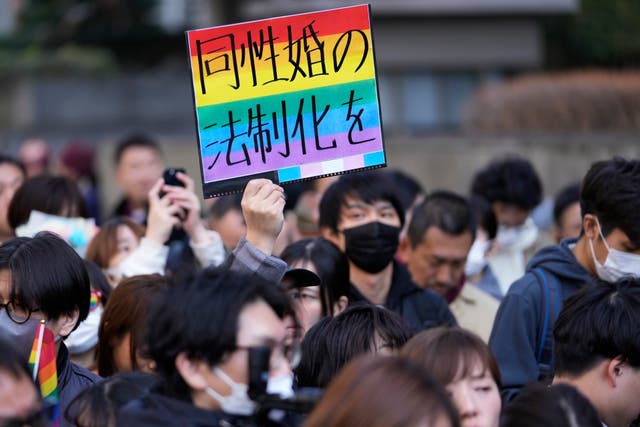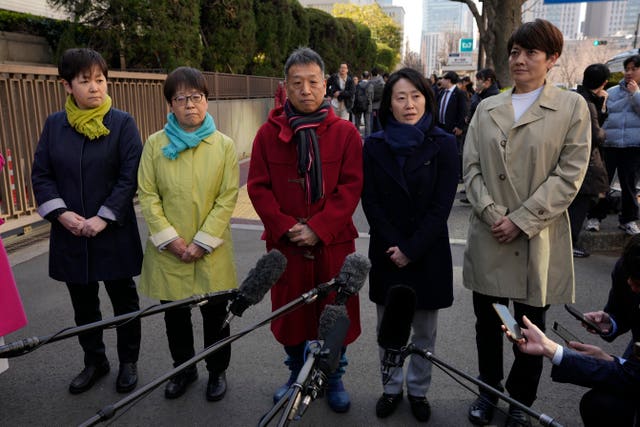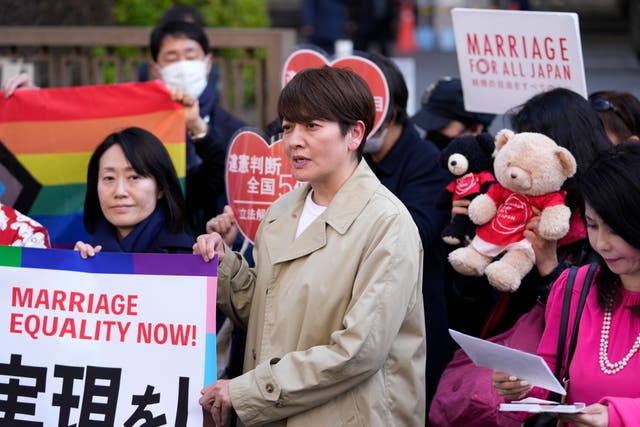Denying same-sex marriage unconstitutional, a Japanese high court says
Japan is the only member of the G7 nations that still excludes same-sex couples from the right to legally marry.

A Japanese high court has ruled that denying same-sex marriage is unconstitutional and called for urgent government action to address the lack of any law allowing for such unions.
The court does not have the power to overturn the current marriage law, which has been interpreted to restrict marriage as between a man and a woman.
Government offices may continue to deny marriage status to same-sex couples unless the existing law is revised to include LGBT+ couples, or a new law is enacted that allows for other types of unions.

A lower court issued a similar ruling earlier on Thursday, becoming the sixth district court to do so.
But the Tokyo District Court ruling was only a partial victory for Japan’s LGBT+ community calling for equal marriage rights, as it does not change or overturn the current civil union law that describes marriage as between a man and a woman.
Five previous court decisions in various cities said Japan’s policy of denying same-sex marriage is either unconstitutional or nearly so.

Japan is the only member of the Group of Seven nations that still excludes same-sex couples from the right to legally marry and receive spousal benefits.
Support for marriage equality has grown among the Japanese public in recent years, but the governing Liberal Democratic Party, known for its conservative family values and reluctance to promote gender equality and sexual diversity, remains opposed to the campaign.
In the Tokyo ruling, the court said the right to marry, have a family and enjoy advantages marriage brings — such as tax deductions and social security benefits — are guaranteed for everyone, and that lack of the legal right to same-sex couples deprives them of their basic right.
The Tokyo ruling also acknowledged the right for anyone to live based on their sexuality and sexual identity, and the traditional family values and marriage are changing, and equality of same-sex marriage is increasingly accepted in international and corporate communities.

Marriage equality is now recognised in dozens of countries, not only in western countries such as Greece and the United States but also in Asia, with Nepal allowing same-sex marriage registration starting in 2023, according to the Marriage for All Japan, a civil group supporting the lawsuits.
While Japan’s conservative government has been criticised as stonewalling diversity, recent surveys show a majority of Japanese people back legalising same-sex marriage. Support among the business community has rapidly increased.
Tokyo enacted an LGBT+ awareness promotion law in June that critics said was watered down. The Supreme Court separately ruled that Japan’s law requiring compulsory sterilisation surgery for transgender people to officially change their gender is unconstitutional.





